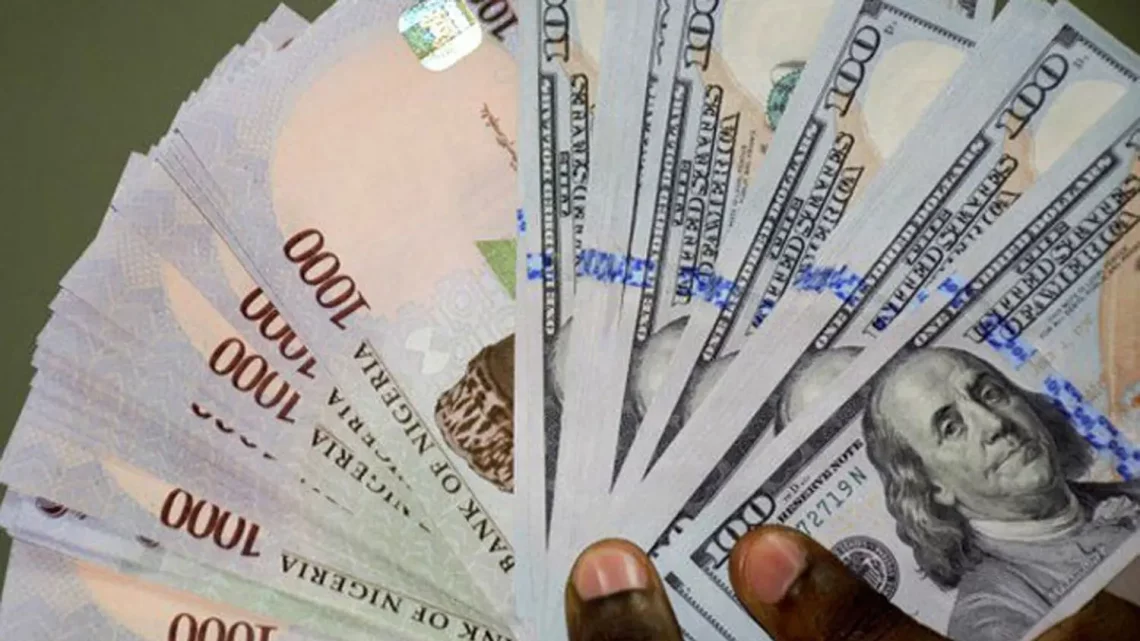Messrs Agusto & Co. believes that the best way forward for the Naira is a ‘crawling peg’ with the US Dollar. This means that we would benchmark the Naira with the US Dollar by looking at the inflation rates in the two countries. The difference in the inflation rates will form the basis of devaluation of the Naira on a yearly basis. So, if in Nigeria, we have an average yearly inflation of say 18 per cent and the US has average inflation of say 6 per cent, we devalue the Naira by 12 per cent, the difference. This gives some sort of structure, but like the use of Purchasing Power Parity (PPP) to analyse exchange rates, it is artificial, academic, and flawed.
For one, inflation in Nigeria is often understated for some reasons. Mr Bismarck Rewane has put out his own estimate of inflation at about 45 per cent. Imagine devaluing yearly by say 40 per cent! So, disputes will arise around the average inflation rate at least in Nigeria. And from that point on, the entire analysis falls apart. In truth, we all know that the value of a country’s currency should be largely dependent on its productivity. What are you selling versus what are you buying? In fact, we should be looking at what are you producing versus what do you need from the rest of the world? If we compare the two economies, we may end up suggesting that the Naira exchanges at N5,000 to one dollar. Why? Whereas Nigeria produces only cash crops (cocoa, ginger, sesame, sorghum, soya beans, hibiscus flowers, palm kernel oil, okra, yam, cassava and a few more crops and noting that the crude oil we produce has nothing of our own indigenous technological input), the USA produces some of the best education in the world where we pay top dollar (our House Speaker is presently at Harvard, and then there is Yale, Princeton, Chicago, Southern California, MIT, and the rest), that country also produces the best defense weaponry and technology in the world. The USA is maintaining the lead in technology with her Silicon Valley, has the most sophisticated financial markets out of New York, Chicago and San Francisco, and remains one of the world’s top tourist countries (Las Vegas, Florida, New York, and so on). The USA’s economy is the most diversified in the world. An average American does not need an international passport in his lifetime. Everything you need is available in-country. Food is cheap and agriculture is super-protected. And based on future projections of what their research and development sector can achieve, where Nigeria basically has none, well, N5,000/$1 may be a good benchmark.
But are we ready? Can we survive that, given that when we set such a rate, our imports become super expensive from everywhere and our people will surely starve to death? I doubt we can afford that. This is one of the reasons why countries have governments… to manage such a crisis. As Nigeria grows, we need to encourage ourselves not only to produce more in terms of volume, but in terms of sophistication. This is called Economic Complexity – in short, the knowledge quotient in the goods and services a country produces and sells. Every good and service entails some knowledge quotient, but some more than others. Planting cassava of sesame requires you to know the planting season and how to tend the crops to gestation and harvesting. But the knowledge required to stick a seed into God’s blessed earth, is nowhere near what is required to manufacture a phone – from design, to mechanics, electronics, technology, and even aesthetics. The value chain in bringing a phone to you in the shops is a lot more sophisticated than what is required to transport yam to the breakfast table. This is where the N5,000 comparison comes up. It could even be worse. A big tuber of yam in the market costs about N1,500 or N2,000. A Toyota Prado costs about N90 million or maybe N100 million. You need 50,000 tubers of yam to buy one Toyota Prado. You will need say nine months and vast acres of land to get such a harvest. If we planted yams all over Nigeria, we could only probably afford a handful of Toyota Prados in a given year. This means that we have been living on borrowed time, as we have these luxury machines everywhere like ‘pure water’. A country has no choice than to see how it can play catch up with global leaders. It is an unending journey.
The Agusto strategy also means that for as far as the eyes can see, we shall simply continue to devalue the Naira. And when we look at compounded rates, 10 per cent yearly means that the currency would have tumbled 100 per cent within six years and it gets worse from there. In a decade, the naira could have become worthless… like tissue paper. Why lock ourselves into a situation where we must always devalue the naira? And if we also try to chase inflation, we do so at the expense of GDP growth. We need growth, else our people will continue to be very jobless, and the economy remains stagnant. So, I say we try something else.
Professor Pat Utomi has also spoken. But he suggested that the approach will not be short-term in nature. He mentioned the need to produce and export and get productive, even as he made a detour into how markets are built and accused the current government and by extension the Central Bank of jettisoning market precepts by creating multiple exchange rates. I am of the view that an explanation of how market works and why we should rely on markets in this instance does us a disservice. Prof Pat acknowledged the complexity here by speaking about the need to take a long-term view and refocus on the basics. Also, the use of multiple exchange rate is not particularly a recent phenomenon even though the present administration of President Buhari came with some level of arrogance when it carved out some ‘official’ rate of N306/$1 for ‘government functionaries’ in 2016. This has now been abolished for a general Investors and Exporters rate determined by the market after much damage had been done.
The other cogent truth is that a singular exchange rate is a myth. Everywhere I have traveled to there are different exchange rates within a tight band depending on your negotiating ability. Exchange rates inside airports are usually more punitive than in the high streets for example. From one BDC to another you can get different rates at the same time. And I reckon that exchange rates for international trade purposes in most countries are also different depending on what is available at your bank at a specific point in time. Our fixation with exchange rates is a problem. This is also part of the Financialisation of the economy that is our bane. Too many Nigerians who should not be concerned with exchange rates are now obsessed with it. We have become attuned with every opportunity to make quick money. Everyone is now a banker. We must help our people to refocus on productivity while monetary authorities clean themselves up and ensure that the volatility around rates reduce to the barest minimum.
The Real Issues
I believe most people will skirt the issues depending on how it affects them and I humbly opine that we haven’t started to hit the nail on the head.





